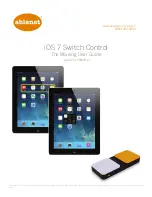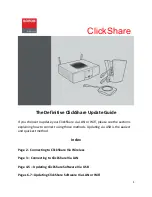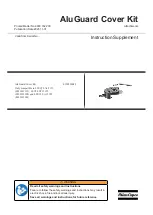
Instructions for Dynohub
3810.0405.026 © July 2014 by Sun Race Sturmey-Archer Inc.
1. GENERAL INFORMATION
1.1 Scope of this leaflet
Congratulations on your purchase of a Sturmey-Archer dynohub. For the best
performance, please follow instructions in this leaflet. Please contact your
dealer if any problems are experienced with these products.
This leaflet refers to the following hub types :
Dynohub with 90mm drum brake
◎
: XL-FDD
Dynohub with 70mm drum brake
◎
: X-FDD
Dynohub: HDS10
◎
series (HDS12)
Dynohub for disc brake: HDS20
◎
series (HDS22)
1.2 Preparation
1.
Check the degree of parallel of the front fork end. If the front end is severely
out of parallel, deformation of the hub axle may cause noise from an
obstruction inside the dynohub to be generated.
2.
Install the dynohub to the front fork so that the side with the connection
terminal is on the right when facing toward the front of the bicycle. If the side
with the connection terminal is facing toward the left, the dynohub may not
turn properly while riding.
3.
Check that the dynohub connection terminal is securely connected before
using the dynohub.
4.
Use a 6V/2.4W bulb for the front light and a 6V/3.0W bulb for the front light
and taillight.
5.
Do not disassemble the internal hub mechanism.
6.
The dynohub will cause the turning of the wheel to become slightly heavier
because of the magnet inside the hub.
2. INSTALLATION
2.1 XL-FDD, X-FDD
1.
Set the wheel-set done.
2.
Select a suitable brake arm clip to clamp the brake arm loosely to the front
fork.
3.
Fit hub into the front fork (1) with the wheel centralized. Fit toothed axle
washer (2), Mudguard stay (3), Basket stay (4), Dome-Nut (5), tighten the
dome nuts to a torque of
22-23Nm
.
4.
Tighten the brake arm clip firmly in this position to either
2 Nm
torque.
△
!
If the cable connected to the ground terminal is not properly grounded,
check that the Toothed axle washer (2) perforates the paint surface of the
front fork. If the Toothed axle washer (2) is not perforating the paint
surface, the light will not illuminate properly, so scrape away a small
amount of paint from the front fork.
It is recommended that you connect the two wires to ensure that current
flows smoothly.
3
4
5
2
1
2.2 HDS10, HDS20
See section 2.1. Skip steps 2.1.2 and 2.1.4.
2.3 Connection of the cable
1.
Twist the cable wires (6) before connecting them so that they stay together.
2.
Connect the cable as shown in the illustration below.
3.
Recommended wire specification
6
Type
Stranded
Wire
Size (AWG) 22
Diameter approx. 0.8
Insulation
Diameter 1.8 - 2.0mm
4.
Do not switch over the frame cable (7) and the light cable (8) by mistake. If
the cables are connected incorrectly, the light will not illuminate.
5.
Scrape away the paint from the light’s frame connection terminal (9) and the
light connection terminal (10) when connecting the cables.
6.
Connect the cables as shown in the illustration below.
7
8
9
Note :
Bend the cable wires and run
them along the grooves.
Insert
Bend
Approx.15mm
Frame connection terminal
Light connection terminal
1
0
2.4 Checking the light illumination
1.
Rotate the front wheel and check the light illumination.
△
! Do not ride the bicycle while the connector cover is removed, otherwise
the cable might get caught in the bicycle wheel.
3. BRAKE
3.1 Closed End Cables
1.
Attach the cable to the handlebar brake lever.
2.
Locate the brake adjusting spigot in the slot of the brake arm.
3.
Fit the cable nipple into the hub brake lever assembly.
3.2 Pinch Bolt
1.
Attach the cable to the handlebar brake lever.
2.
Locate brake adjusting spigot into slot on the brake arm. Push the cable inner
wire through the hole in the pinch bolt nut and locate this into the cradle into
the brake lever. Pull the inner wire through the pinch bolt until taut.
3.
Set adjuster (11) so that there is approximately 5mm of thread showing above
the locknut (12).
4.
Holding the brake lever in the ‘brake on’ position with the inner cable taut,
hold the pinch bolt ‘nut’ on the inside of the brake arm with a spanner and
tighten pinch bolt ‘screw’ on the outside arm
(2-3Nm)
.
3.3 Brake Adjustment
1.
Slacken the brake adjuster locknut (12).
2.
Turn the adjuster (11) until the brake is applied.
3.
Slacken the adjuster until the wheel can just be turned freely.
4.
Tighten the locknut (12).
△
! To maintain maximum braking efficiency avoid sharp bends and kinks
in the cable.
Brake arm
Hub brake lever
1
1
1
2
3.4 Disc brake for HDS20
Please check and adjust according to brake manufacturers manual.
Summary of Contents for HDS10 Series
Page 1: ......






















